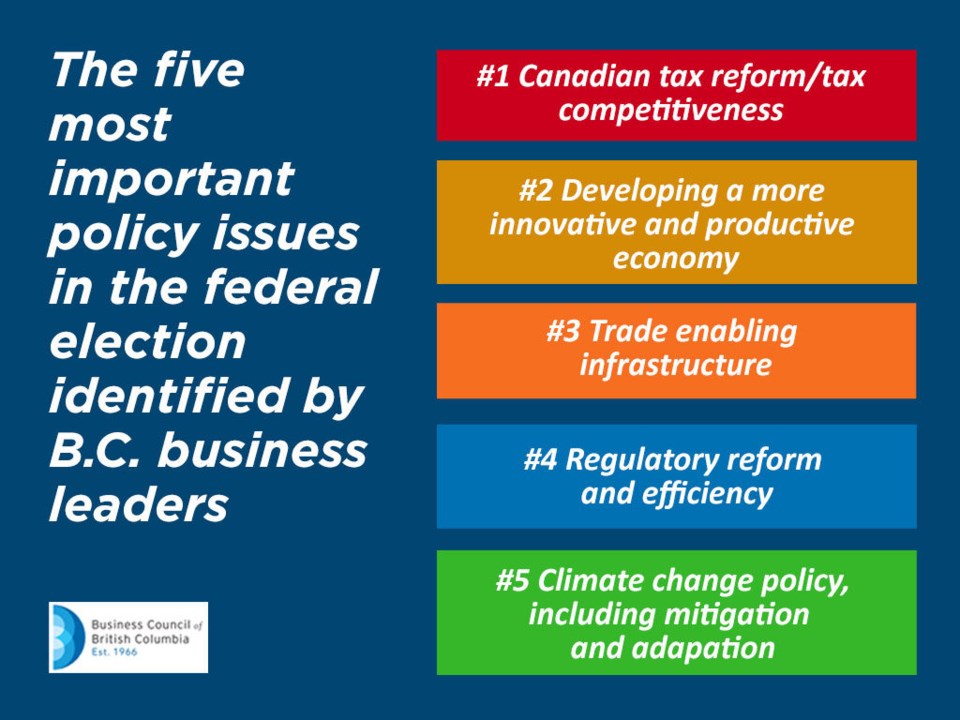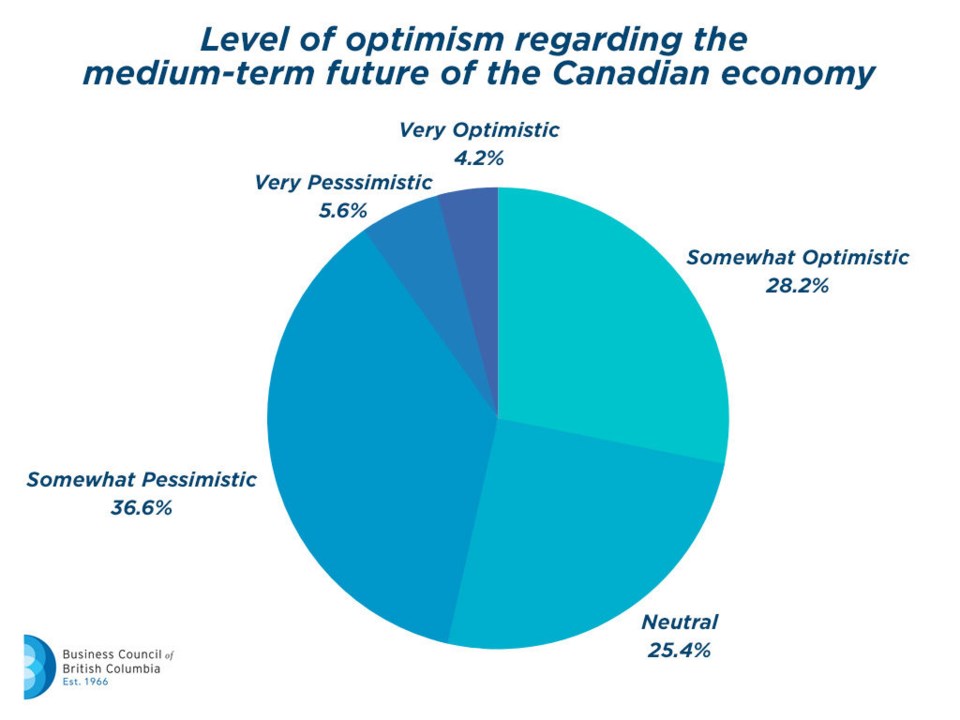What would you say was the top issue of the federal election?
Headlines were dominated by mistakes, scandals, and things like two planes vs. two passports – and very rarely on substantial ideas or long-range vision for the economy.
One of the most important and criminally overlooked issues was Canada’s competitiveness. This was a sadly missed opportunity, because as a recent survey of BC business leaders indicates, there are reasons to be concerned.
“From an economic perspective, this has been the Seinfeld of elections,” says Greg D’Avignon, president and CEO of the Business Council of British Columbia (BCBC), invoking the ‘election about nothing’ tag.
Earlier this month, BCBC surveyed its members to gauge their level of optimism – or pessimism – about the economy, and its ability to create the jobs, services, and lifestyles British Columbians and Canadians have come to expect and depend on.

“What's been absent is a real, thoughtful conversation around how we can enable a 30-year-old’s young family to improve the quality of their life, with higher wages and working smarter, not working longer,” says D’Avignon.
The survey indicated that while Canada and British Columbia enjoy a lot of inherent advantages, and the economy is still performing relatively well, there are clear warning signs it’s trending in the wrong, long-term direction.
Top of the list of concerns was a broad review and reform of Canada’s tax system, which was designed for a very different country and pre-digital economy.
“We’ve got the same tax model in BC, and largely in Canada, since the Queen was a princess,” says D’Avignon, “and the last time we had a broad tax review, [finance minister] Bill Morneau wasn’t born.”
D’Avignon says a comprehensive tax review needs to focus on things and ways to improve Canada’s productivity, and ability to track capital.
The NDP, which has somewhat quietly introduced or increased 20 taxes since taking power in 2017, have a slightly different view.
“It’s critical to remain competitive,” says Finance Minister Carole James, “but you also need to invest in the other pieces, because if we keep our taxes low but we have no employees able to work in businesses because they can't afford housing or women can't get back into the workforce because they can't afford childcare, then we're not helping those businesses expand. We're not helping with the productivity issue.”
Economic issues weren’t totally absent in the campaign, but as D’Avignon notes, came too often in the form of boutique tax credits, aimed at politically desirable subsets of the population. Likewise, infrastructure promises by all parties were more about attracting swing riding support than looking to enable more trade.
Also missing from the debate was any discussion of regulatory reform and efficiency. Canada ranks 33rd out of 34 countries in the OECD in the time it takes to obtain a building permit – and for the most part, things are getting even worse. On that metric – and others – Canada needs to be able to compete with more than just the Slovak Republic.

Is there reason to be concerned?
For her part, James says the province will always be affected by broader national and global trends.
“British Columbia is not an island,” says James. “We’re impacted by global economic storm winds. But I think if you take a look at all of the indicators, they’ve all talked about the strength of our economy, the resiliency we have – that will help us. I expect British Columbia will be in a good strong position. We are again expected to lead the way when it comes to growth.”
D’Avignon says that while British Columbia continues to do some things very well, that’s no reason to expect things will stay that way forever, or ignore warning signs:
“When you see continued declines in our productivity compared to the rest of the world, economic data driven by growth in population, not productivity, Canada lagging in the investment and new technology, and our inability to compete on service economies,” says D’Avignon.
“Those kinds of things ultimately wash up on your doorstep in really bad ways.”
Maclean Kay is Editor-in-Chief of The Orca
SWIM ON:
- Last year, The Orca conducted its own poll on the mood of BC business. Has anything changed?
- Last October, Greg D'Avignon spoke with Rick Cluff about LNG, and free trade in North America.
- In September, finance minister Carole James delivered some bad news in her quarterly report.



